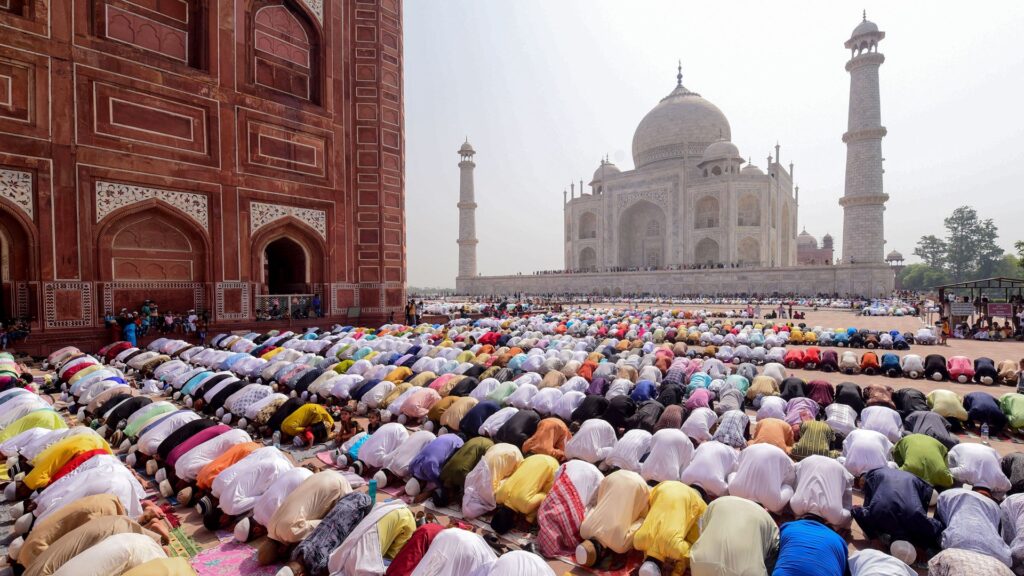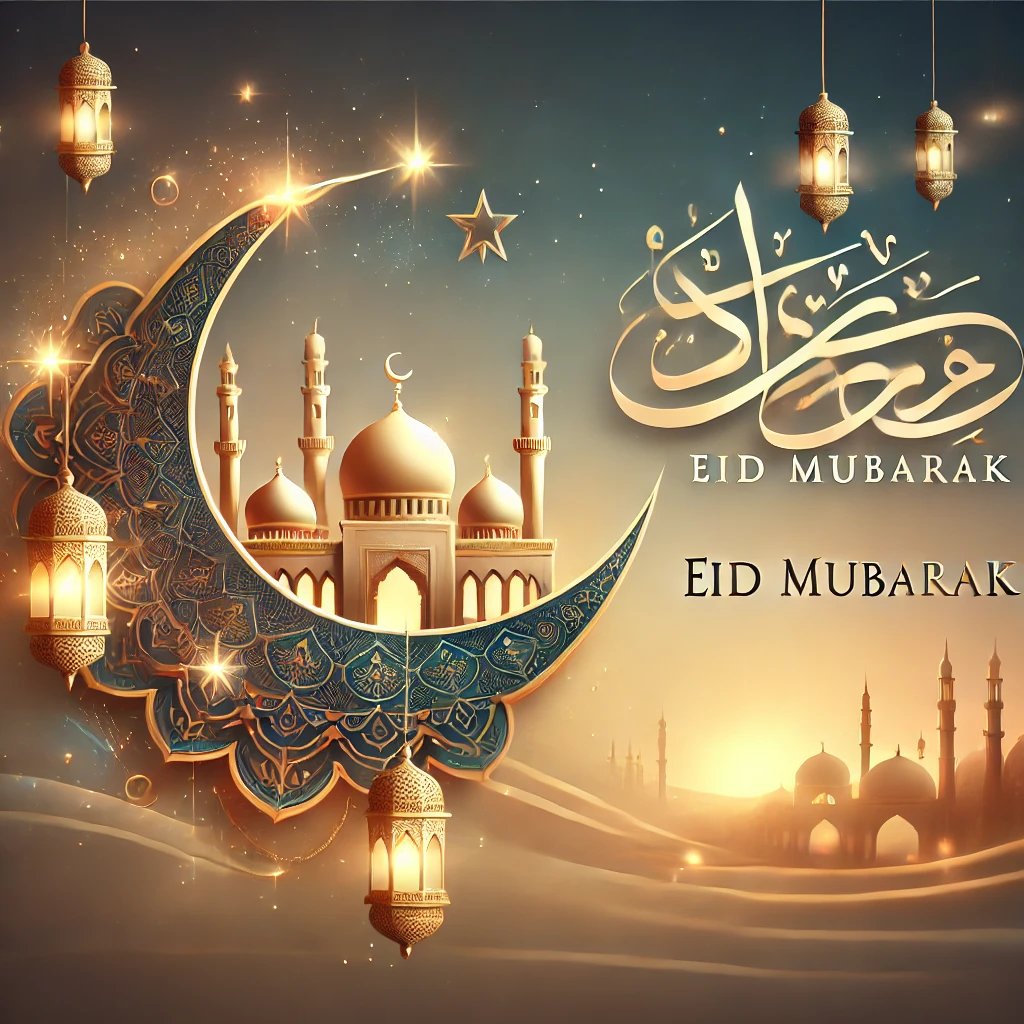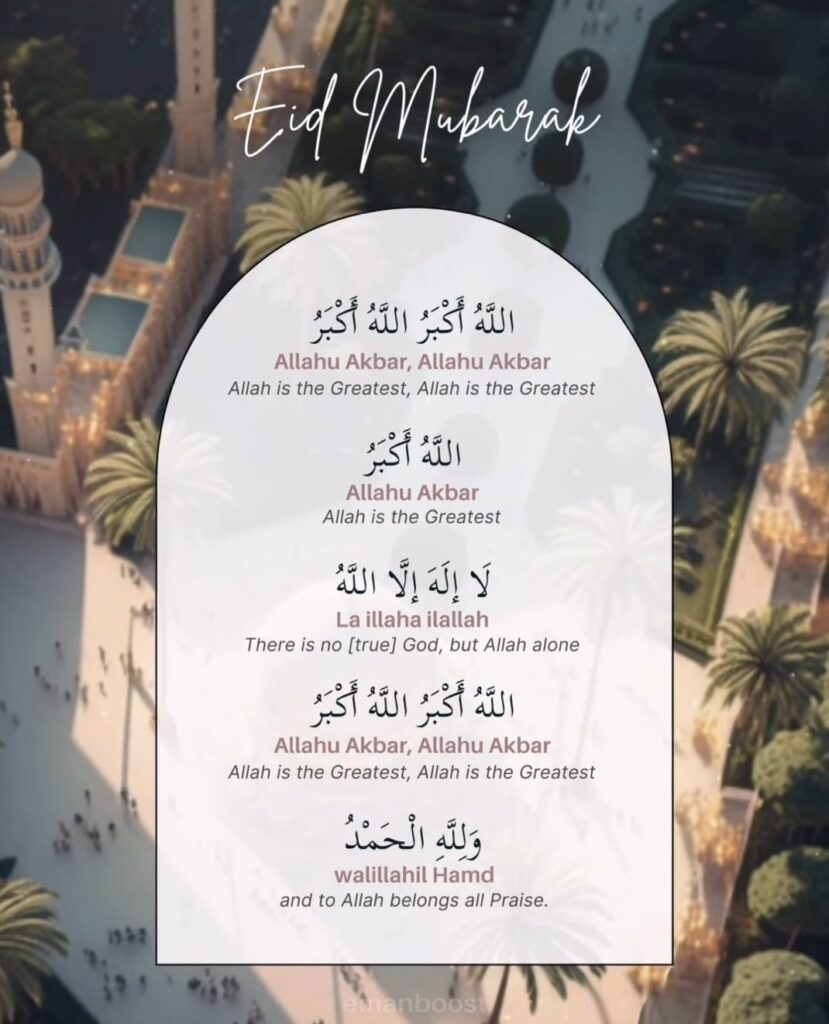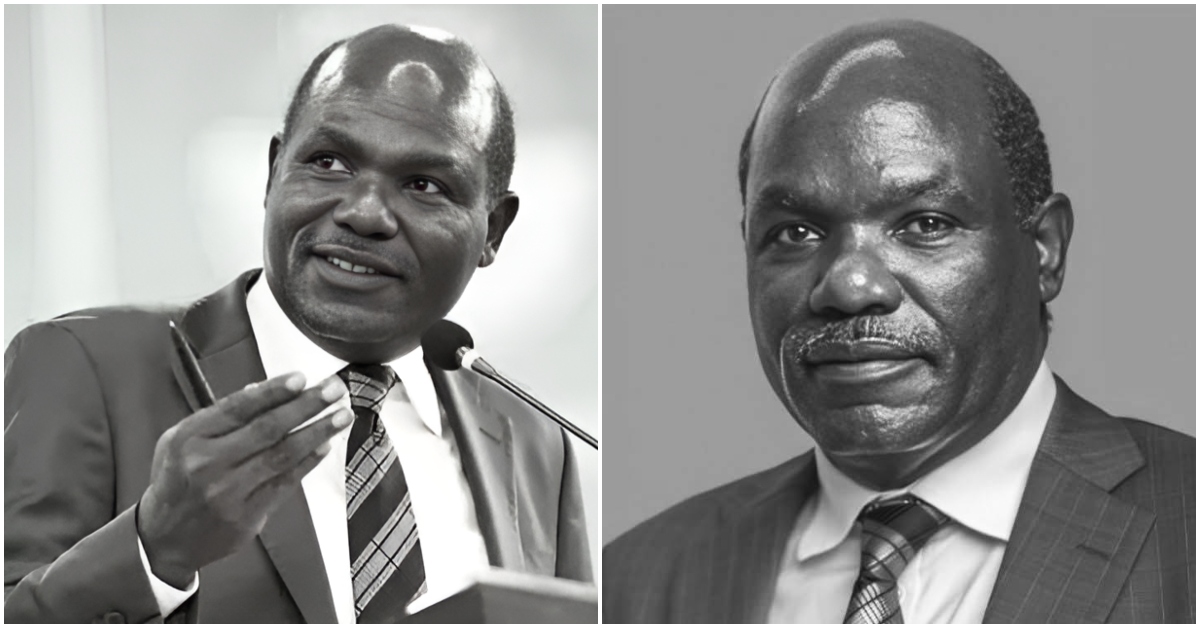Eid al-Fitr, often called the ‘Festival of Breaking The Fast’, is one of the most important Islamic celebrations.
It marks the end of Ramadan, the holy month of fasting, prayer, and reflection. On this day, Muslims come together to express gratitude to Allah, seek forgiveness, and celebrate their spiritual journey over the past month.

When Does Eid al-Fitr Happen?
Eid al-Fitr is celebrated on the first day of Shawwal, the 10th month of the Islamic calendar.
Since the Islamic calendar follows the lunar cycle, the date of Eid varies each year depending on the sighting of the moon.

The exact date is confirmed upon the sighting of the crescent moon on the 29th night of Ramadan.
If the moon is not visible, Ramadan continues for another making the month 30 days long.
Importance of Eid al-Fitr
Eid al-Fitr is a deeply spiritual and significant occasion for Muslims worldwide. It represents:
- Gratitude to Allah – After a month of fasting and devotion, Eid is a time to give thanks for strength and blessings.
- A Time for Charity – Muslims are encouraged to give Zakat al-Fitr, a special form of charity, before Eid prayers to support those in need.
- Forgiveness and Renewal – Eid is a chance to let go of past grievances, reconcile with others, and embrace a fresh start.
- Community and Togetherness – Families and friends gather to celebrate, share meals, and visit one another, reinforcing bonds.

Here’s a list of things to do and prepare for on Eid Day to ensure you have a meaningful and joyful celebration:
1. Perform Ghusl (Ritual Bath)
- It’s highly recommended to take a ritual bath (ghusl) on the morning of Eid to purify yourself before heading to the mosque or attending celebrations.
2. Dress in Your Best Clothes
- Wear new or your finest clothes to mark the special occasion. It’s customary to dress in bright, clean clothes to celebrate Eid.
- For men, it’s common to wear a clean thobe, kurta, or suit, while women often wear beautiful dresses or traditional attire.
3. Apply Perfume
- Applying perfume or fragrance (it’s Sunnah for men) before going to the Eid prayer is a common practice to feel fresh and presentable.
4. Eat a Light Meal Before the Eid Prayer
- Sunnah: It’s recommended to eat something sweet like dates before heading out to the mosque for the Eid prayer.
- This marks the end of fasting and prepares you for the day ahead.
5. Give Zakat al-Fitr (Charity)
- Zakat al-Fitr is obligatory and should be paid before the Eid prayer. It purifies your fast and ensures those in need can also join in the celebrations.
- It’s best to give it before the prayer, either in cash or food, so the poor can enjoy their Eid.
6. Offer Eid Salah (Prayer)
- Attend the special Eid prayer in congregation (at the mosque or in an open field) after the sun rises. The Eid prayer consists of two units (rak’ahs) and should be followed by a sermon (khutbah).
- Make sure to arrive early for the prayer and to follow the proper etiquette.
7. Make Dua (Supplication)
- Before heading to the prayer, engage in personal supplication and seek blessings for yourself, your family, and the entire Muslim ummah.
- After Eid prayer, it’s a tradition to say the Eid greeting: “Taqabbal Allah minna wa minkum” (May Allah accept [good deeds] from us and from you).
8. Give Eid Greetings
- Greet your fellow Muslims with the traditional Eid greeting: “Eid Mubarak” or “Eid Sa’id” (Blessed Eid).
- Share heartfelt Eid wishes with family, friends, and neighbors.
9. Visit Family and Friends
- Eid is a time for family and community. Visit relatives, neighbors, and friends to share meals, gifts, and enjoy each other’s company.
- Consider visiting the elderly, sick, and those who may be alone, spreading joy and blessings.
10. Prepare Special Eid Meals
- Prepare traditional dishes, sweets, and snacks to share with your loved ones. Common dishes include biryani, kebabs, sweets like baklava, and date-filled desserts.
- Offer food generously, as it’s a time of feasting and gratitude.
11. Give Gifts
- It’s customary to exchange gifts on Eid, especially with children. This could be in the form of money (Eidi), clothes, toys, or other thoughtful presents.
- The spirit of giving is central to the Eid celebration.
12. Decorate Your Home
- Add festive decorations to your home to create a joyful atmosphere. This can include lights, balloons, banners, or Eid-specific decorations.
13. Spend Time in Reflection
- Eid is a time of celebration, but also reflection. Take a moment to thank Allah for the strength and patience during Ramadan, seek forgiveness, and plan for spiritual growth in the coming months.
14. Enjoy and Celebrate
- After a month of fasting, Eid is a time to relax, have fun, and enjoy the company of loved ones.
- Share in the joy and express gratitude for all the blessings Allah has granted.

By preparing in this way, you can ensure that your Eid celebration is meaningful, spiritually fulfilling, and filled with love and joy.



